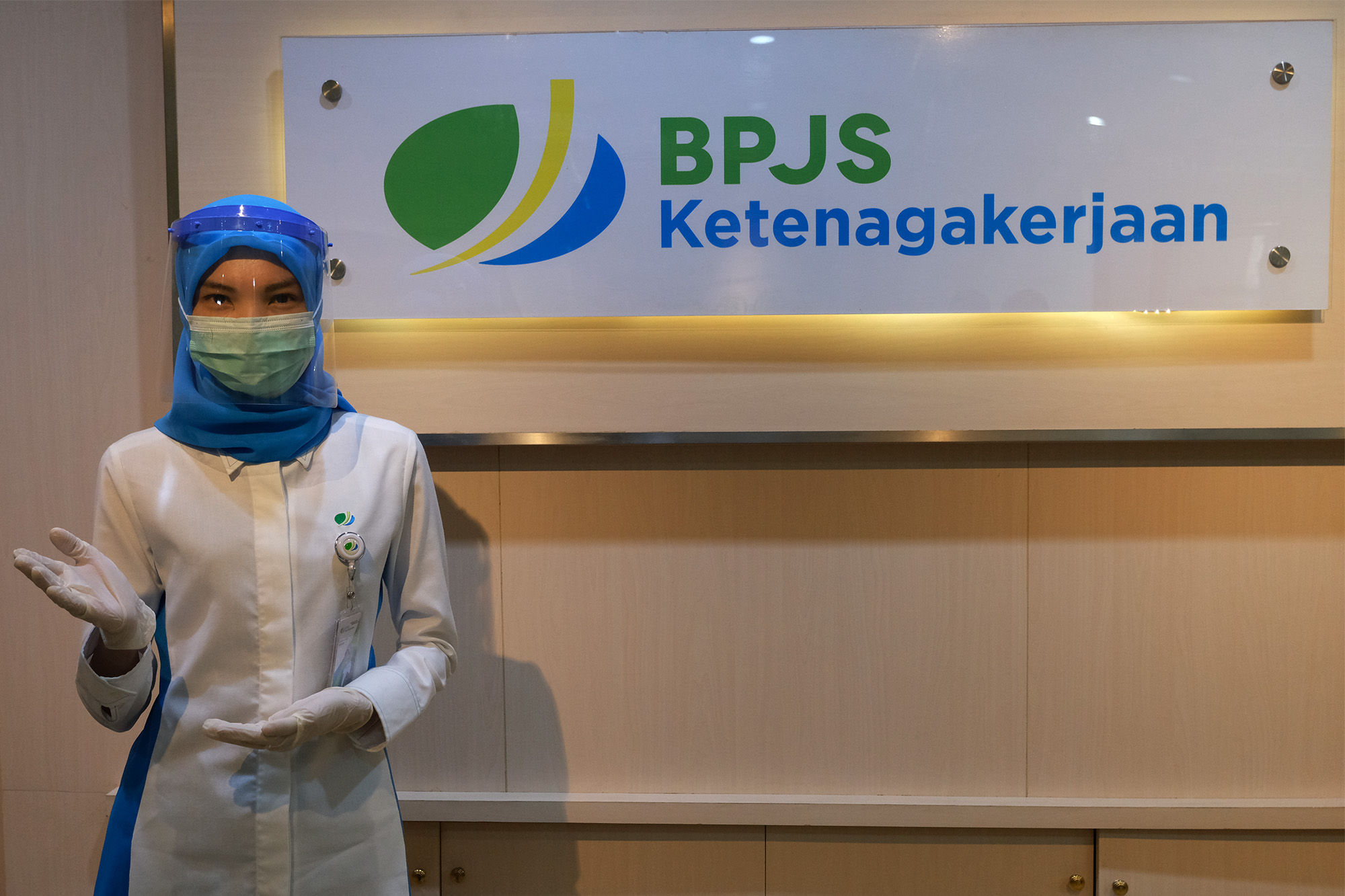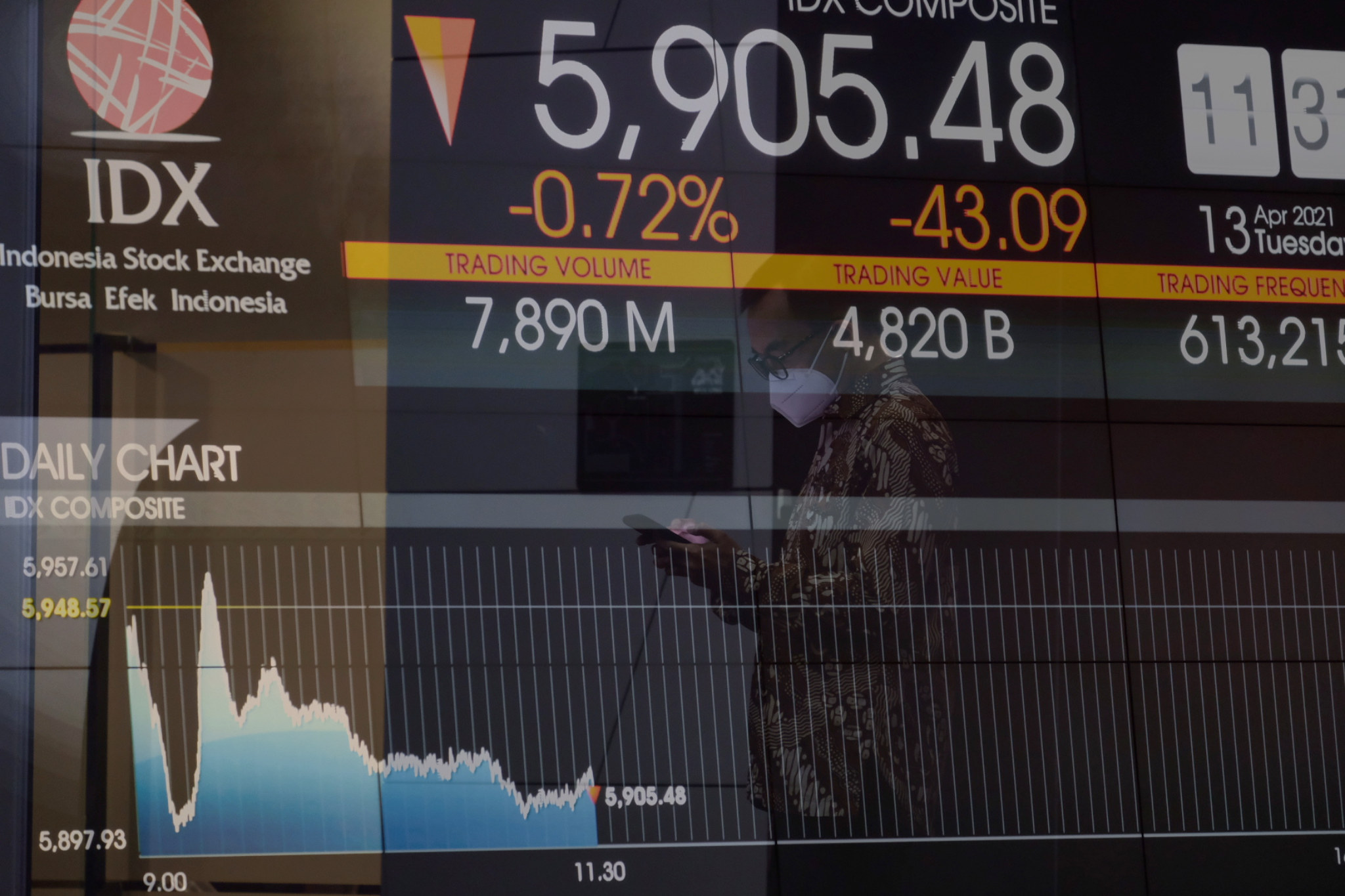
Investment Loss is Deemed Corruption (Serial 2): Social Security Agency Exits, The Stock Market Shakes
JAKARTA – At the end of March 2021, Indonesian Social Security Agency stated its plans to reduce the investment portion in the stock market. This gained negative responses from those within the Indonesian stock market. How else, the day after the announcement, the Composite Stock Price Index (IHSG) bounced from the psychological level of 6,000 […]
Insight Langit Biru
JAKARTA – At the end of March 2021, Indonesian Social Security Agency stated its plans to reduce the investment portion in the stock market. This gained negative responses from those within the Indonesian stock market.
How else, the day after the announcement, the Composite Stock Price Index (IHSG) bounced from the psychological level of 6,000 at the end of the trading session on Wednesday, March 31, 2021. The composite index significantly corrected 1.42% to a level of 5,985.52 to close trading for the March 2021 period.
Capital Market Observer, Satrio Utomo, assessed that the withdrawal of Social Security Agency investment from the capital market made the stock less conducive. The reason is, Social Security Agency itself is one of the main players driving the Indonesian capital market.
- 11 Bank Biayai Proyek Tol Serang-Panimbang Rp6 Triliun
- PTPP Hingga Mei 2021 Raih Kontrak Baru Rp6,7 Triliun
- Rilis Rapid Fire, MNC Studios Milik Hary Tanoe Gandeng Pengembang Game Korea
- Anies Baswedan Tunggu Titah Jokowi untuk Tarik Rem Darurat hingga Lockdown
- IPO Akhir Juni 2021, Era Graharealty Dapat Kode Saham IPAC
The total managed funds of the Social Security Agency currently reached Rp486.38 trillion, making it the largest institutional investor with managed funds in Indonesia. Meanwhile, the investment placement portion is around 17% or equivalent to Rp82.68 trillion in the stock market and around 8% or equivalent to Rp38.9 trillion in mutual funds.
The policy taken by the Social Security Agency has put it in a side line, in other words, not making any transactions in the capital market. In fact, as an institution that has large funds, the presence of the Social Security Agency has been considered important.
“The share price can go up if someone wants to buy it. Social Security Agency can make continuous purchases on our stock exchange. When it is not in the market, usually the market conditions become sluggish,” said the man who is familiarly called Tommy to TrenAsia.com, Sunday, April 18, 2021.
Based on the data collected, the majority of the stock investment of Social Security Agency portfolios are placed in stocks of big caps and blue chips. At least, 25 out of 34 Social Security Agency stock investment portfolios are issuers that are members of the LQ45 Index constituents.
This means that the stocks collected by Social Security Agency are listed companies with good fundamentals and a jumbo capitalization of more than Rp100 trillion.
As a result, the policy to reduce the share of stock investment will be a new challenge for capital market players despite the conditions of economic recovery.
Turmoil for the JCI

Karyawan beraktivitas dengan latar pergerakan indeks harga saham gabungan (IHSG) di Gedung Bursa Efek Indonesia (BEI), Jakarta, Selasa, 13 April 2021. Foto: Ismail Pohan/TrenAsia
Tommy stated that big caps and blue chips issuers have been the main support for the movement of the JCI so far. Meanwhile, the majority of investors interested in buying shares of big caps and blue chips issuers are foreign investors and institutional investors with jumbo managed funds such as the Social Security Agency.
“The wait and see attitude of the Social Security Agency is very impactful because this institution is one of the main players (in capital market), especially in big caps and blue chips stocks which are the driving force of the JCI,” he stated.
Binaartha Sekuritas Analyst, Nafan Aji Gusta Utama, affirmed that the plan of the Social Security Agency had influenced JCI performance. In fact, this has become a sentiment in itself for the capital market which has resulted in sluggish trading.
“Domestic sentiment is still accompanied by the plans of the Social Security Agency to reduce the share of investment in stocks and mutual funds,” he said.
- 11 Bank Biayai Proyek Tol Serang-Panimbang Rp6 Triliun
- PTPP Hingga Mei 2021 Raih Kontrak Baru Rp6,7 Triliun
- Rilis Rapid Fire, MNC Studios Milik Hary Tanoe Gandeng Pengembang Game Korea
- Anies Baswedan Tunggu Titah Jokowi untuk Tarik Rem Darurat hingga Lockdown
- IPO Akhir Juni 2021, Era Graharealty Dapat Kode Saham IPAC
On a separate occasion, Director of PT MNC Asset Management, Edwin Sebayang, actually considers that this discourse does not affect the market conditions at all.
Although the managed funds of the Social Security Agency are quite large, the most important thing is how the JCI prospects in the future and the performance of listed issuers in the country.
“I don’t think it (affects). So, it is not a matter of source of funds, but what is the prospect of JCI and the stocks,” he wrote via short message.
Meanwhile, the Director of Trade and Regulation of the Indonesian Stock Exchange (IDX), Laksono W. Widodo, assesses that the investment policy of public fund managers is an independent policy.
“As Stock Exchange regulators, we respect the decisions of the managers or the investment managers,” he said to journalists.
Ia menjelaskan sebagian besar dana kelolaan BP Jamsostek ditempatkan di efek bersifat utang pemerintah dan swasta serta deposito sehingga kebijakan tersebut kemungkinan besar tidak akan memengaruhi nilai transaksi di Bursa secara signifikan.
He explained that the managed funds of Social Security Agency are mostly placed in government and private debt securities and deposits so that the policy is doubtful to significantly affect the transaction value on the Exchange.
Criminal Threats Due to Investment Risk

Ilustrasi penanaman modal asing di Indonesia turun akibat wabah virus corona. / Pixabay
The policy taken by the Social Security Agency was triggered by the alleged corruption in the management of investment funds within the agency that was brought up by the Attorney General’s Office (AGO).
Director of Investigation at the Junior Attorney General for Special Crimes at the AGO, Febrie Adriansyah, said the Social Security Agency had suffered losses in at least the last three years. AGO questioned the possibility of business risks and customer money management undertaken by the state-owned company.
“If it’s a loss from business risk, how is the analysis shows that it causes a loss of Rp20 trillion?” Febrie was quoted on Monday, February 15, 2021.
- 11 Bank Biayai Proyek Tol Serang-Panimbang Rp6 Triliun
- PTPP Hingga Mei 2021 Raih Kontrak Baru Rp6,7 Triliun
- Rilis Rapid Fire, MNC Studios Milik Hary Tanoe Gandeng Pengembang Game Korea
- Anies Baswedan Tunggu Titah Jokowi untuk Tarik Rem Darurat hingga Lockdown
- IPO Akhir Juni 2021, Era Graharealty Dapat Kode Saham IPAC
According to him, no company has experienced an unrealized loss of the Social Security Agency within three years. Until now, the AGO is still investigating the possibility of a wrong financial analysis or in this case, it could have been deliberate.
Based on the portfolio of stocks and mutual funds owned by the Social Security Agency, Tommy considers that the decline in investment value or the unrealized loss experienced by the company is a natural thing. In short, it is a stock market risk that no one can be certain of.
“If this is solely due to an investment strategy, it should not be subject to criminal sanctions. I don’t see Social Security Agency ever placing funds in stocks with poor fundamentals,” he explained.
Tommy said the investment pattern undertaken by the Social Security Agency also differs from the case of PT Asuransi Jiwasraya (Persero) or even PT Asuransi Angkatan Bersilateral Republik Indonesia (Persero) or ASABRI.
The reason is there was not any fake stock or mutual fund purchases detected by the Social Security Agency, unlike Jiwasraya and ASABRI. Another example, the Social Security Agency also placed managed funds in mutual fund instruments at the asset management company PT Schroder Investment Management Indonesia. After investigating, not a single mutual fund product was suspicious.
“So, the losses obtained by BP Jamsostek were due to market risk, while Jiwasraya or ASABRI suffered losses due to stock risk. These are two different things,” explained Tommy.
That way, Tommy urged the AGO to immediately resolve the issue that was alleged by the legal institution with the available evidence. If not, this would only have a negative impact on the sustainability of the Indonesian capital market.
“It is the duty of the Attorney General’s Office to dissect the investment portfolio which is considered problematic. So, this is what I have not found the problem until now. If it is said that there are allegations of corruption, it must be proven in court,” he said.
This article is the latest in a series of special reports from the previous article entitled “Investment Loss is Deemed Corruption (Serial 1): Social Security Agency Strategy to Avoid Unrealized Loss.”
Writer: Drean Muhyil Ihsan
Editor: Sukirno
